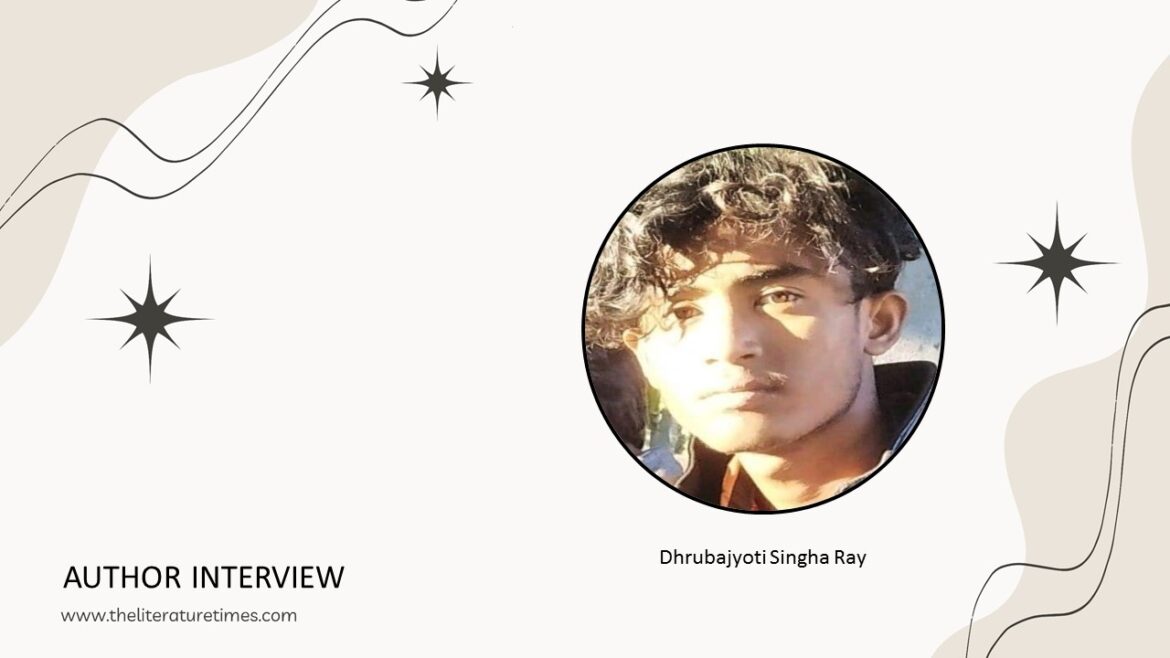
The Literature Times: Welcome to The Literature Times, author. Congratulations on the release of your book. What responses are you getting from your readers? Please share your experience with this book.
Author: Thanks for congratulating me. The responses are truly kind and I am happy that a handful of readers are reading this book.
This story first came to my mind when I was fifteen, then I first dared to write it at the age of seventeen and finished it in just three months. Then I spent a year editing it and luckily published it. The most difficult step in this entire journey was daring to write the story. Other steps were relatively smooth.
The Literature Times: What encourages you to become an Author?
Author: I think my inner voice and my undying love for words encourages me to become an Author.
The Literature Times: What are your favorite topics of writing? Please tell us something about your interest areas in the literature.
Author: My favorite topics in writing are highlighting human loneliness, creating unique characters, portraying any kind of obsession, artistic lifestyle and romance.
The Literature Times: We were hoping you could tell us about some of those writers who had inspired you and whom you follow!
Author: There are many. Bibhutibhushan Bandyopadhyay and Anne Frank inspired me to start writing. I became interested in novellas after reading Ruskin Bond’s books. Currently I am learning a lot from the writings of Haruki Murakami and Fyodor Dostoevsky.
The Literature Times: The titles seem different and catchy; how you decided it? Please let us know the story behind it.
Author: Actually I couldn’tfind anyother name. Just before signing the contract paper, I thought of naming the book based on the female protagonist. Besides, the title suggests that the story is about obsession, which revolves around a girl named Isha.
The Literature Times: What are your achievements so far? Tell us something about your writing career.
Author: I have not yet achieved anything special in the world of literature, but two achievements are notable. They are – (1) Now I can read my own writings in books, (2) and my stories are read by others besides me.
Three years ago I made a detailed action plan and have been writing professionally ever since. I have been happy, successful, sad and even depressed many times in my little writing career. But I realized in the process that storytelling is my passion and I want to make it my full time career at any cost.
The Literature Times: What is your current goal in writing career? How do you see your future in writing?
Author: I just want my writing to be free of any obstacles and objections. I hope that in the future I will write better stories without restriction and my readers will set me apart from other writers.
The Literature Times: Are there any other books being worked by you? Please let us know about your future projects.
Author: My debut book is Tanisha. I am currently working on a semi-autobiographical book.
The Literature Times: How you see Indian writing in the 21st century? What changes do you see in the modern way of writing? Do you feel it has been changed by the time?
Author: Actually my knowledge on this subject is limited because I follow foreign literature more than Indian literature. But I know this much that there has been a stark difference in Indian writing between the 20th century and the 21st century. Modern writers are much weaker in creating realistic characters and describing scenes. I find no morals in today’s bestselling books. They write stories for entertainment purposes only and because of this their writings often become cheesy. I think the overly commercial mindset of today’s publishers is largely responsible for this change.
The Literature Times: How easy/ difficult it was for you to publish your book? What message would you like to give to budding authors?
Author: It was very complicated for me at first, but after doing enough research on this matter, things became easy.
My message to budding writers is – Don’t write for others, write for yourself.
I think true storytellers need to step out of the world of entertainment and delve into literature and feel its true purpose. Writing is a very lonely job. Not everyone can see or understand what you write or for what you write. If you want to write a book, you have to believe in yourself and fight against loneliness.
And before publishing your book, you have to research with enough patience.



